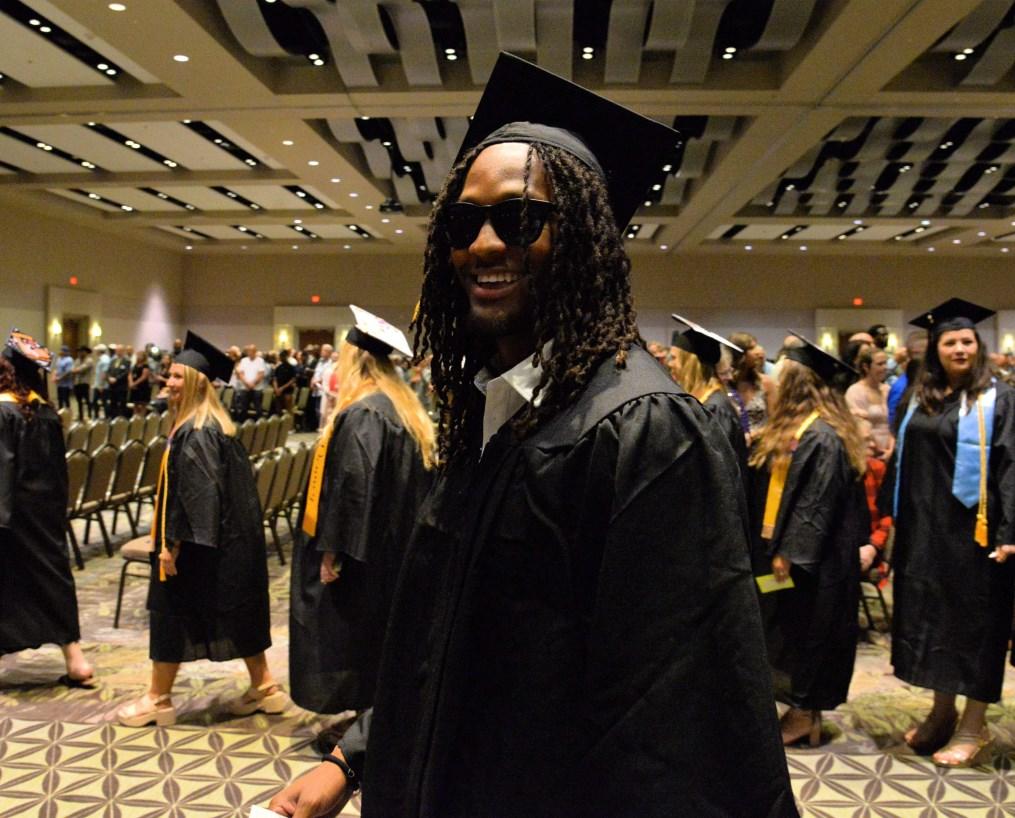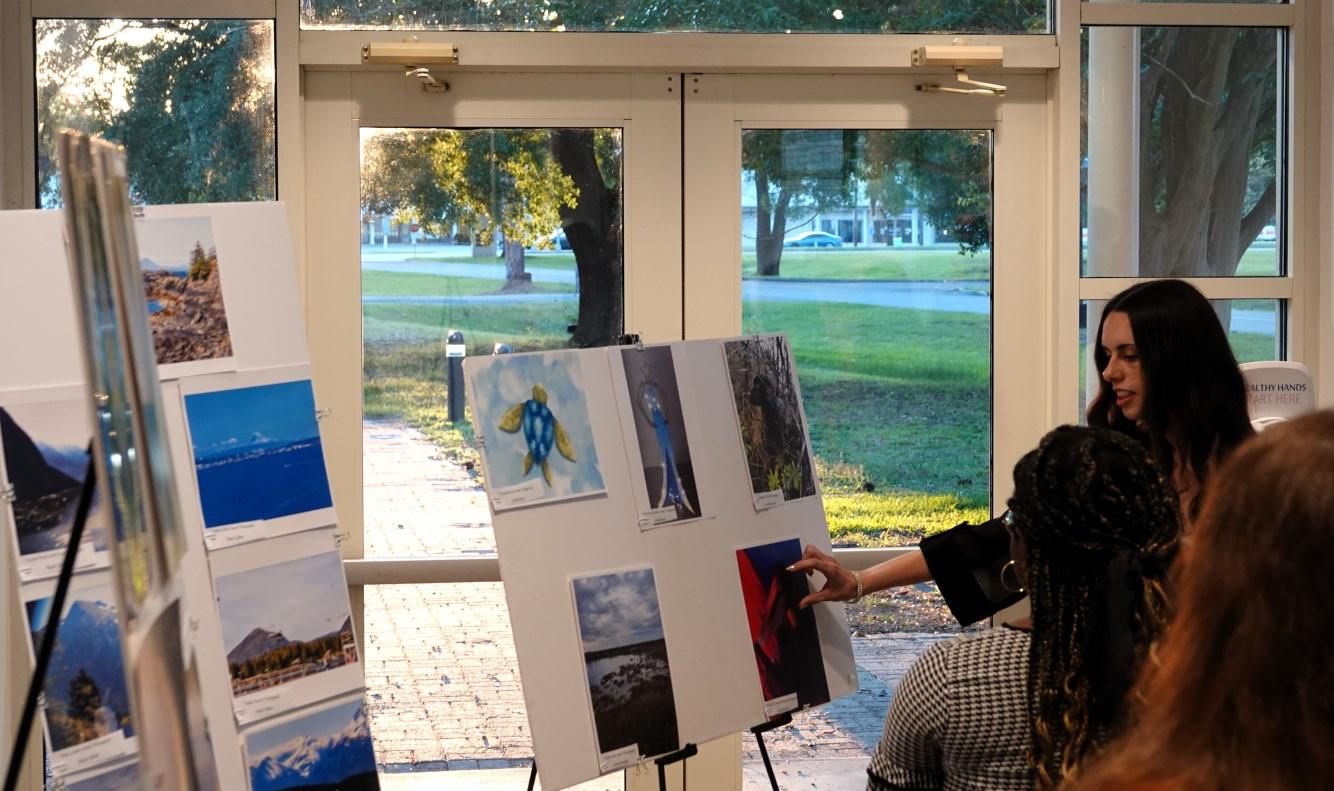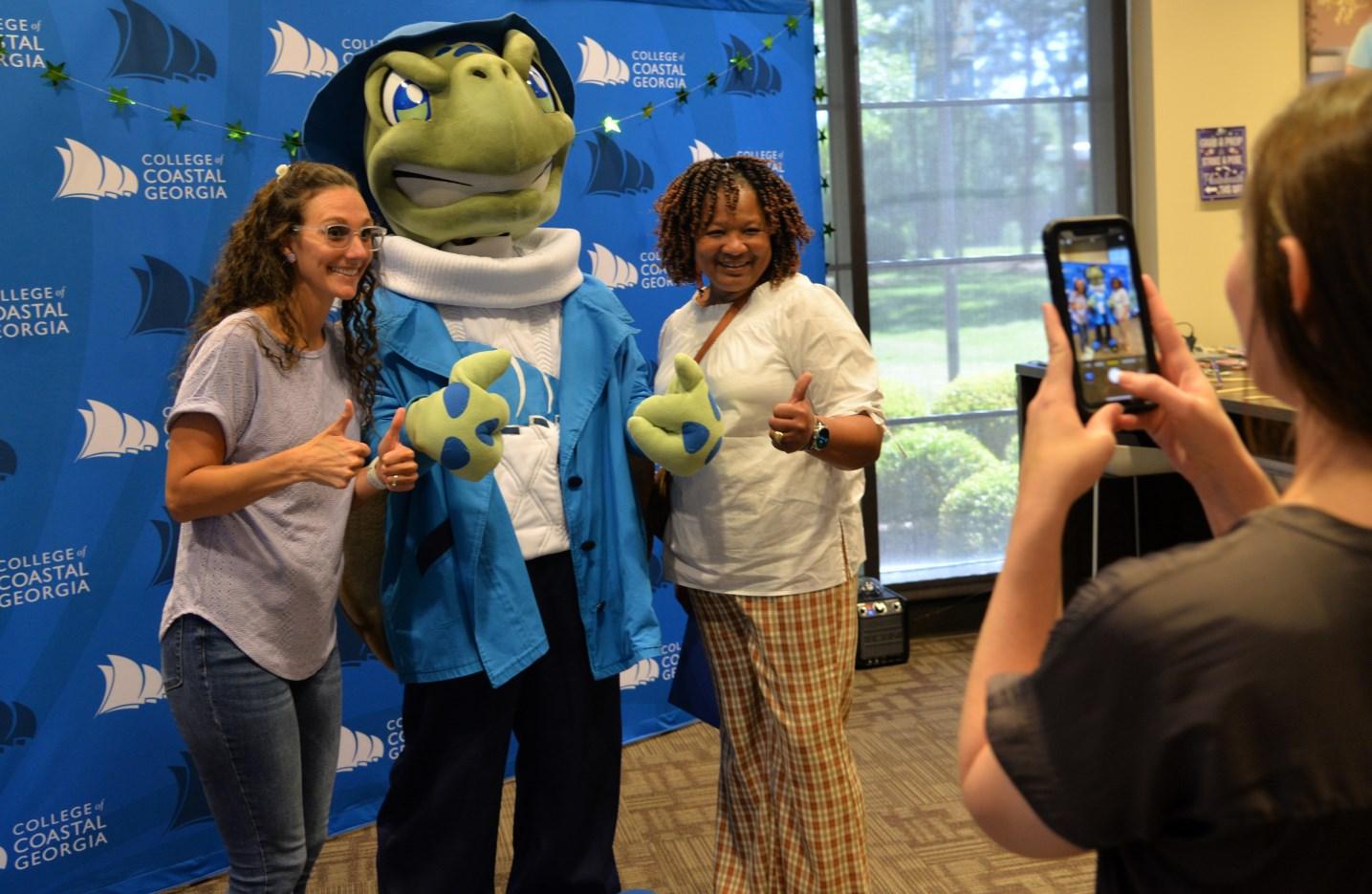CHARTING THE COURSE SINCE 1961

































NURSING & RADIOLOGIC SCIENCE PINNING CEREMONY










SENIOR SEND-OFF EDU TEACHER CANDIDATES





ENDEAVOR CONFERENCE: SERVICE-LEARNING SYMPOSIUM
SOURCE SYMPOSIUM
By Tiffany KingParticipating in the Honors Program at the College of Coastal Georgia was an easy decision for senior Emily Davis. When she was in middle school and high school, the McDonough native took part in her schools’ honors programs.

“When I figured out that we had one here I said, ‘I have to be a part of this.’ It’s always something I’ve loved doing,” Davis said. “I take my academics very seriously, so why wouldn’t I be a part of it?”
With that motivation, Davis graduated with honors from the College, earning a bachelor’s in biology with a concentration in coastal ecology. Attending Coastal Georgia was a given for Davis. With its great ecology program and proximity to the beach, she just had to apply. Davis has always been interested in marine biology and loves anything related to the ocean. She has dreams of one day working at a marine sanctuary.
Learning Something New Through Honors
The Honors Program offers a variety of opportunities for students to approach their coursework from an honors-level perspective, and become leaders in their classrooms, on campus, and in the community. To graduate from the Honors Program, students must earn a minimum of 12 honors credits through designated honors courses, work
with a faculty member to complete honors-level work within a 3000/4000 course, and complete an honors capstone project.
Although Davis loves marine life, for her capstone project, she went in a different direction. Davis worked with Dr. Tate Holbrook, professor of biology, on a project analyzing data on butterflies from the Butterflies of the Atlantic Flyway Alliance. Davis couldn’t decide what to do for her project, and Holbrook presented her with an idea.
“Dr. Holbrook emailed me and said, ‘I have a project that you can do.’ I like conservation and don’t know a lot about butterflies, so again I said, ‘Why not?’” Davis said.
That is what Professor Emily Boyle, English lecturer and director of the Honors Program, enjoys about the Honors Program.
“You can present your own project to a professor, but they can also invite you to be a part of a project they’re already doing, which may not be specifically in your field, but may contribute to it, or give you another dimension to think about,” Boyle said.
For her project, Davis studied the nectar plants and habitats used by migrating butterflies along Georgia’s Atlantic Flyway. From 2019 to 2022, nectar plant surveys were
conducted across 10 BAFA sites. Eight different habitats were surveyed: brackish wetland, dune, forest, freshwater wetland, grassland, saltmarsh, shrubland, and previously developed areas, including gardens. Observers identified all flowering plants visited by several migratory butterfly species, and the data was collected by site managers and trained community scientists. Davis analyzed the data.
“I was able to sort through that and come to some conclusions about butterfly habitats and how to better conserve them,” Davis said.
The results showed that nectaring butterflies were more likely to visit plants in open habitats than in forests. The top four flowers visited were litaris (blazing star), pityopsis (silkgrass), verbesina (crownbeard), and salvia (sage). Her findings can help guide BAFA’s habitat management and restoration efforts to support butterfly populations.
Davis never did an independent research before this one. She saw it as a great opportunity to gain more research skills. Through the process, Davis improved her communication skills, learned about time management, and also realized something about herself that she had what it takes to do research.

“I really didn’t like research and haven’t had to do much of it before, but through this project, I’ve learned that I actually enjoy it. I enjoy doing it more than I thought I would,” she said.
Davis presented a research poster about her capstone project at the recent ENDEAVOR Conference.
Why Honors?
Being a part of the Honors Program helped Davis stay accountable for her work.
“Knowing that you (Boyle) were checking in on me and looking at everything that helped keep me accountable,” Davis said. “I’ve grown a lot academically too and in my personal skills, like communication and time management. You’re in a position to grow a lot more than if you weren’t in the Honors Program.”
Read more about Emily Davis here.



The Board of Regents of the University System of Georgia (USG) named Dr. Michelle R. Johnston president of Georgia Southwestern State University (GSW), effective June 1, 2024.
“Michelle has done a tremendous job at Coastal Georgia expanding community partnerships and increasing student success in everything from teacher education to nursing, with an emphasis on the skills our graduates need to impact critical workforce areas in Georgia,” USG Chancellor Sonny Perdue said. “I’m a strong believer in growing our own, and this is a natural next step for Dr. Johnston as she continues to make an impact within the system. I know she will help GSW sustain momentum as one of the top state universities in the South.”
GSW has been led by Interim President Teresa MacCartney since May 11, when former President Neal Weaver stepped down to take the helm at Stephen F. Austin University in Texas. When Johnston’s appointment takes effect, MacCartney will transition back to her role as USG’s chief operating officer.
“I’m incredibly grateful to the board and Chancellor Perdue for their confidence in me,” Johnston said. “It’s been a privilege to have been part of Coastal Georgia’s Mariner family, and I know I will be building on that work as a Hurricane. I can’t wait to take a stroll down Hello Walk and work with GSW’s dedicated faculty and staff to keep making sure our students take the world by storm.”
Perdue named Dr. Johnny L. Evans Jr., Coastal Georgia’s provost and vice president for Academic Affairs, as the College’s interim president upon Johnston’s departure.
Before joining Coastal Georgia in January 2019, Evans held leadership positions as the dean of math and science and subsequently as the dean of arts and sciences at Abraham Baldwin Agricultural College, starting in 2013. He spent the first 13 years of his academic career at Lee University in Cleveland, Tennessee, where he was a professor of chemistry and physics and the chemistry program coordinator.
“Dr. Evans, over the past five years, has helped President Johnston strengthen Coastal Georgia’s academic programs and played a key role in providing the life-changing educational experiences that the College is known for,” Perdue said. “I appreciate him stepping into the interim president role as we consider our next steps and look forward to the College’s continued success.”
Known for his dedication to fostering strong academic programs that deliver transformative educational experiences, Evans prioritizes student success, inspired by his own experience as a student at Georgia College & State University. He attributes much of his academic success to the care and mentoring provided by his faculty advisors.
“Coastal Georgia’s faculty and staff care deeply about the college and in making sure students not only get their degrees, but love what they learned in the process,” Evans said. “I’m honored to continue that journey with them in this interim role as we keep making positive connections between students and the workforce.”








